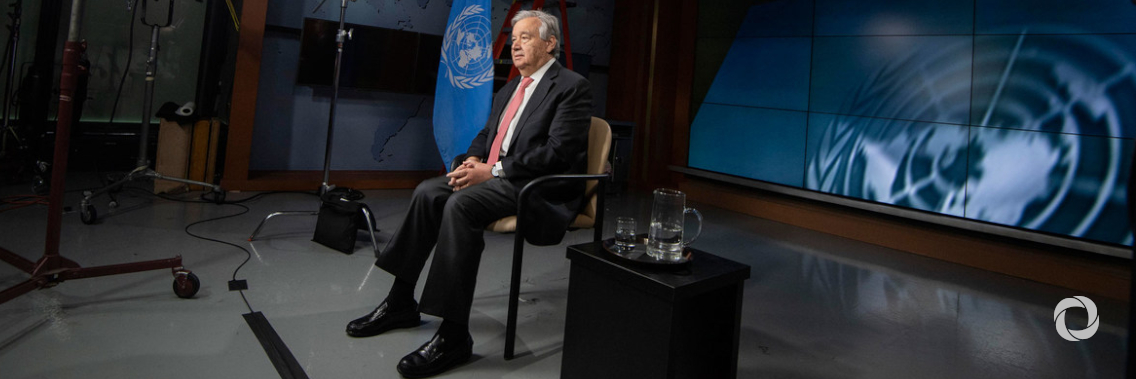The coronavirus pandemic is not only a critical public health danger, but it is also a human, economic and social emergency that is “fast becoming a human rights crisis”, the UN chief said, releasing a new policy brief on shaping an effective, inclusive response to the COVID-19 pandemic.
Noting his February Call to Action to put human dignity and the Universal Declaration of Human Rights at the core of the UN’s work, Secretary-General António Guterres pointed out that today the world is facing “the biggest international crisis in generations”, stressing that human rights “cannot be an afterthought”.
He emphasized that “people and their rights must be front and centre”, and that human rights “can and must guide COVID-19 response and recovery”.
Human rights responses can not only help beat the pandemic by putting a focus on the imperative of healthcare for everyone, but also serve as an essential warning system — highlighting who is suffering most, why, and what can be done about it.
“We are all in this together”, the UN chief declared, adding that while the virus “threatens everyone, human rights uplift everyone”.
One of the report’s key messages is that as a global threat, the COVID-19 response needs to be inclusive, equitable and universal to effectively beat the virus.
“We have seen how the virus does not discriminate, but its impacts do — exposing deep weaknesses in the delivery of public services and structural inequalities that impede access to them”, Mr. Guterres stated. “We must make sure they are properly addressed in the response”.
The report also underscores that everyone, across the entire globe, should be involved in the response.
Advocating for “transparent, responsive and accountable” government during the pandemic, the UN chief upheld that civil society organizations and the private sector, also have “essential roles to play” and that civic space and press freedom are “critical”.
Against the background of rising ethno-nationalism, populism, authoritarianism, and a pushback against human rights in some countries, Mr. Guterres feared that the crisis may “provide a pretext to adopt repressive measures for purposes unrelated to the pandemic”.
The report underscores that the virus is the threat, not the people, and emphasized that any emergency and security measures be temporary, proportional and aimed at protecting individuals.
“We see the disproportionate effects on certain communities, the rise of hate speech, the targeting of vulnerable groups, and the risks of heavy-handed security responses undermining the health response”, detailed the UN chief.
To beat the virus, the report recognized that the world cannot afford to leave any nation behind. And as some countries are better equipped to respond than others, international solidarity is essential.
Read and download the policy brief: COVID-19 and Human Rights: We are all in this together.
Original source: UN News
Published on 23 April 2020

